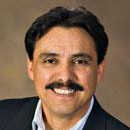Your gift is 100% tax deductible.
COVID-19 Highlighted Ways to Improve Screening
The Challenge
People who have low incomes and who either don’t have health insurance or who are insured by Medicaid often seek primary and preventive care at community health centers. Unfortunately, community health centers have reported lower CRC screening rates than the national average.
The COVID-19 pandemic has greatly added to the challenges of screening for CRC. Delays in screening because of the pandemic will likely lead to delays in diagnosis, meaning more cancers being diagnosed at a later stage, and as a result, an increase in deaths from CRC, which will further exacerbate existing health disparities.
The Research
Jesse Nodora, DrPH of Moores Cancer Center at the University of California San Diego, and his colleagues recently published a commentary in JNCI: Journal of the National Cancer Institute describing the challenges and opportunities to deliver COVID-19-adapted CRC screening to underserved populations receiving care at community health centers.
The COVID-19 pandemic has allowed us to pause and ‘look behind the curtain’ to learn about the fragile state of our healthcare system and the existing cancer prevention disparities among poor and underserved communities.”
Jesse Nodora, DrPH
Moores Cancer Center at the University of California San Diego
ACS Grantee

The researchers interviewed multiple community health center medical directors, held teleconference discussions, and assessed strategic plans. The work resulted in four CRC-specific calls to action for health care providers, academic institutions, relevant local and national government agencies, and other key stakeholders:
- Establish COVID-19-adapted best practices to offer fecal immunochemical test (FIT) programs by mail. These may include mailed invitations to take a FIT test that don’t require an office visit.
- Implement advocacy efforts that identify community gastroenterologists who commit to performing colonoscopies for community health center patients who have abnormal FIT results.
- Assess cancer prevention priorities among people in underserved communities. Because of the high rates of pandemic-related unemployment, loss of housing, and debt, CRC screening may be a low priority for many. We need to understand the barriers of people in the community and help providers adapt process and workflow that helps.
- Assess regional CRC screening and follow-up barriers and solutions. Rural communities may face different challenges so community health centers need to conduct their own assessments and create their unique call to action.
Why It Matters
The COVID-19 pandemic brought to the forefront many of the issues related to the social determinants of health, such as financial problems and access to health care services, healthy food, and community resources. These issues have caused a greater increase in disparities for CRC screening rates. With the pandemic, the need for CRC screening to be available and safely delivered to those at the greatest risk has become even more urgent, given the already low screening rates and disproportionate and pronounced disparities experienced by medically underserved communities. Without appropriate action, the disparity gap for colorectal screening and deaths from cancer will continue to grow.
The calls to action in Nodora’s study may be adapted to create potential solutions and opportunities for decreasing disparities in the prevention and treatment of COVID-19.
- Helpful resources
- For researchers



